A new project funded by UNICEF, the Uzbekistan Social Work Education for Excellence Project (USWEEP), aims to help bolster the field of social work in Uzbekistan.
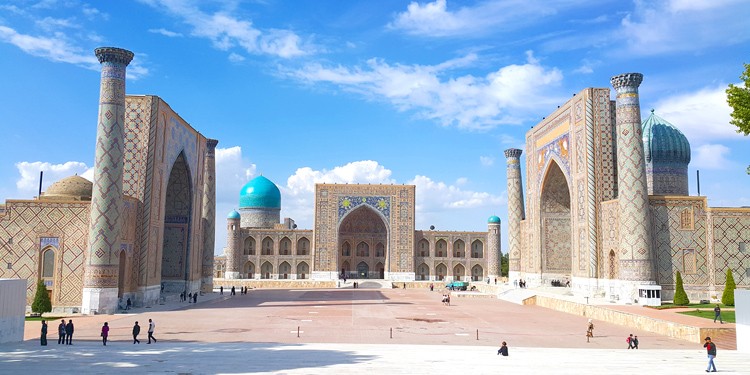
Uzbekistan, a former Soviet Union state situated in Central Asia, has a population of more than 30 million people including at least 10 million children. The country has experienced a number of dramatic events over the last few decades, affecting its current political and social structure. Due to high rates of unemployment and low wages, an immense number of Uzbeks -- almost a quarter of the population -- seek employment through migration. Various resulting stressors, such as financial hardships, unemployment, health issues, and poverty affect modern Uzbeks. As a consequence, child maltreatment and abandonment, family breakdown, domestic violence, and alcohol and/or drug misuse have led to a substantial need for mental health services and social workers in the region.
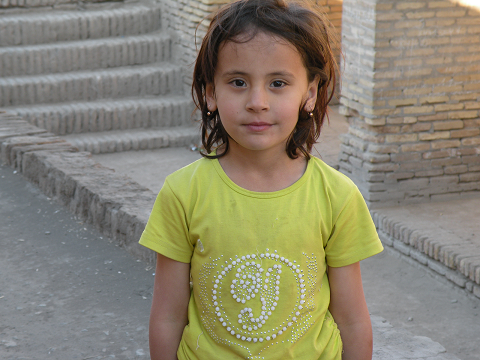
Despite the tremendous need, the field of social work in both Central Asia and Uzbekistan is nascent, with an absence of comprehensive education and training programs. Uzbekistan, along with other Central Asian countries, has been slow to adopt proven evidence-based strategies and social work practices. Fortunately, the government of Uzbekistan has committed to social reforms to ensure the safety and well-being of its citizens.
Introducing: USWEEP
Image Carousel with 4 slides
A carousel is a rotating set of images. Use the previous and next buttons to change the displayed slide
-
Slide 1: UNICEF logo
-
Slide 2: Ms. Tanzila Narbaeva, Deputy Prime-Minister, Chairperson of the Women’s Committee of Uzbekistan; Mr. Sascha Graumann, UNICEF Representative in Uzbekistan
-
Slide 3: Project launch at the National University of Uzbekistan, with presentations by: Dr. Avazjon Marakhimov, Chancellor of the National University of Uzbekistan; Ms. Tanzila Narbaeva, Deputy Prime-Minister, Chairperson of the Women's Committee of Uzbekistan; Mr. Sascha Graumann, UNICEF Representative in Uzbekistan; Drs. Nabila El-Bassel, Louisa Gilbert and Timothy Hunt, and Ms. Lyudmila Kim of SIG/CSSW
-
Slide 4: USWEEP logo
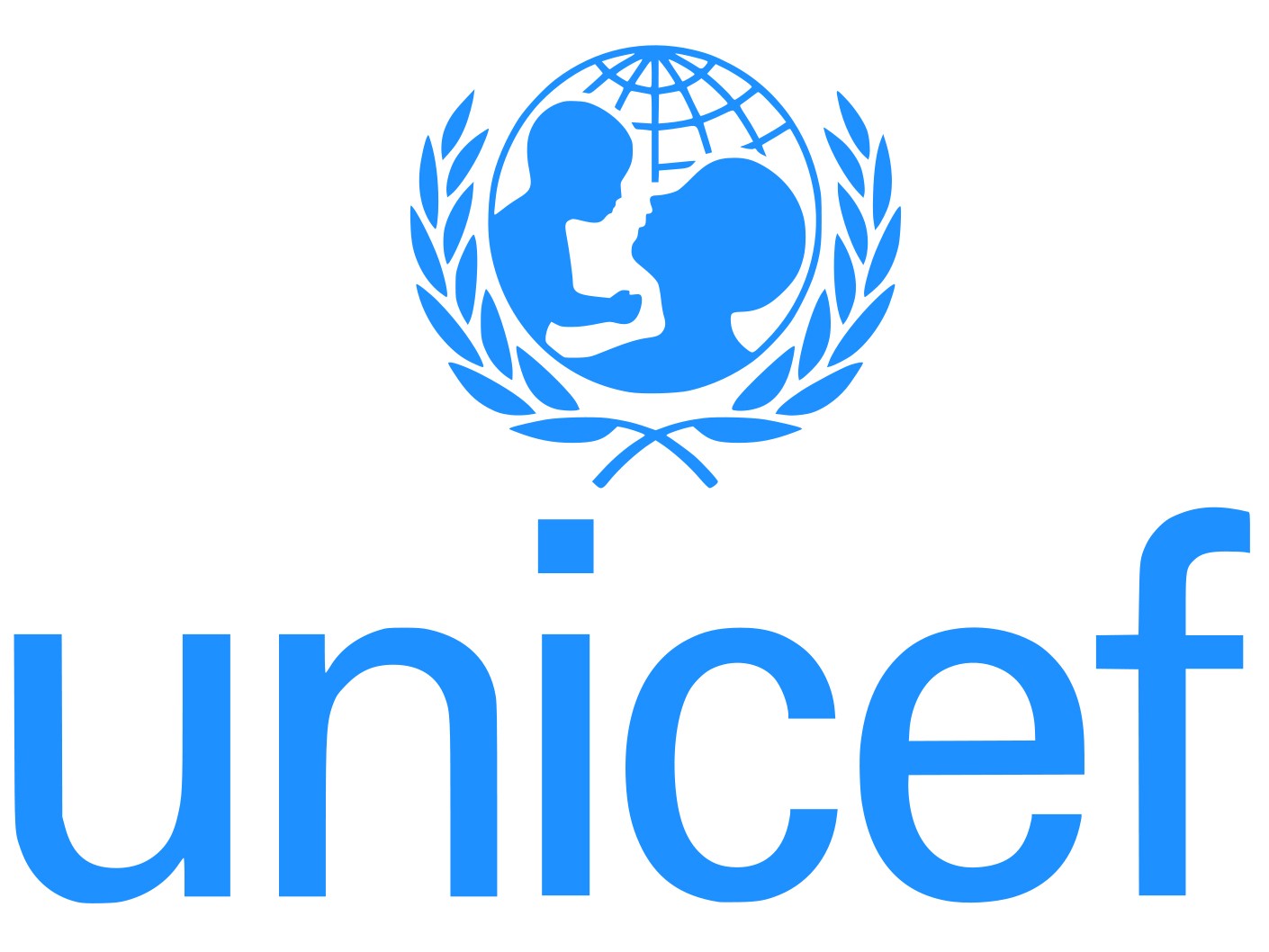
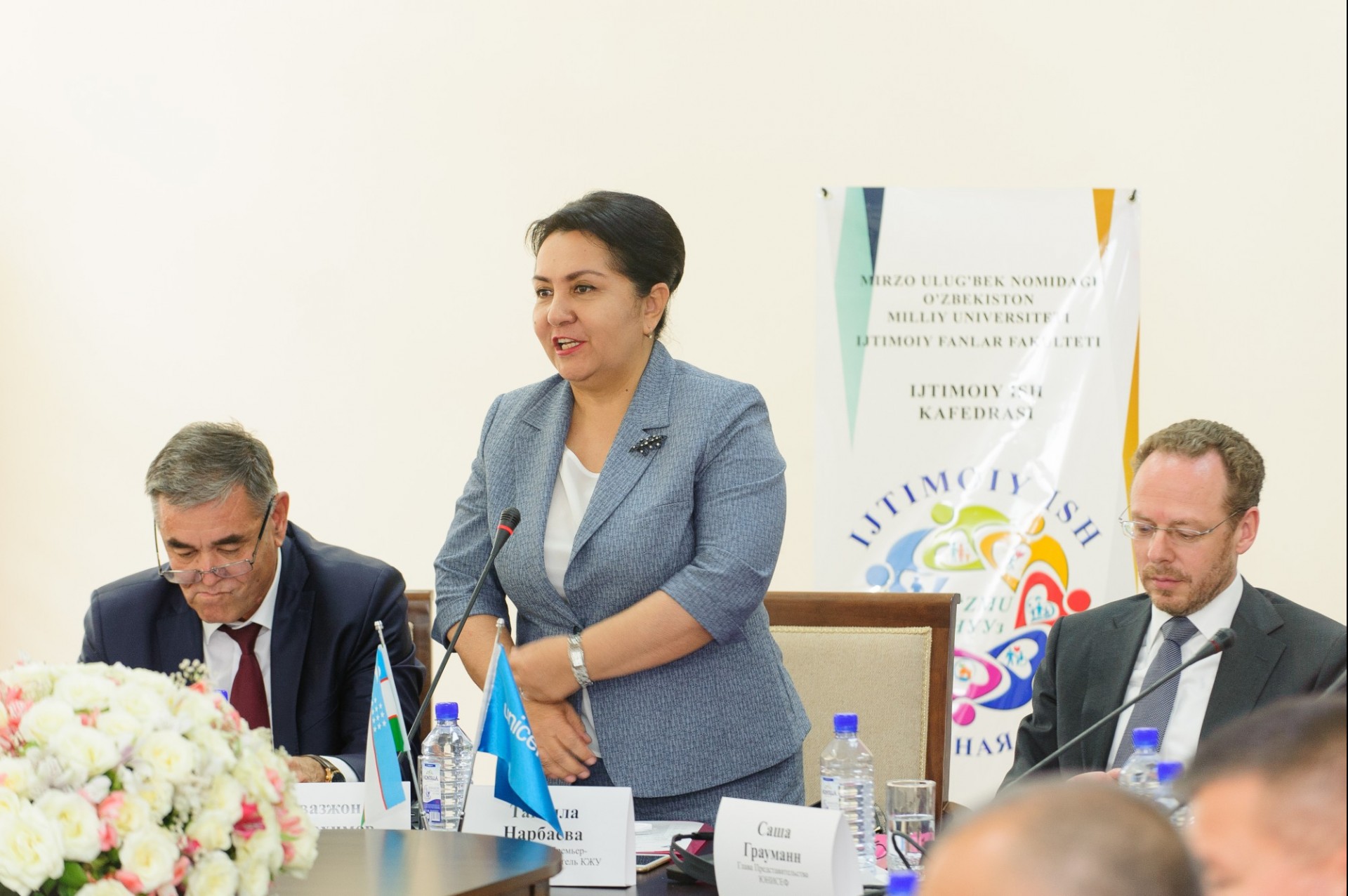
Ms. Tanzila Narbaeva, Deputy Prime-Minister, Chairperson of the Women’s Committee of Uzbekistan; Mr. Sascha Graumann, UNICEF Representative in Uzbekistan
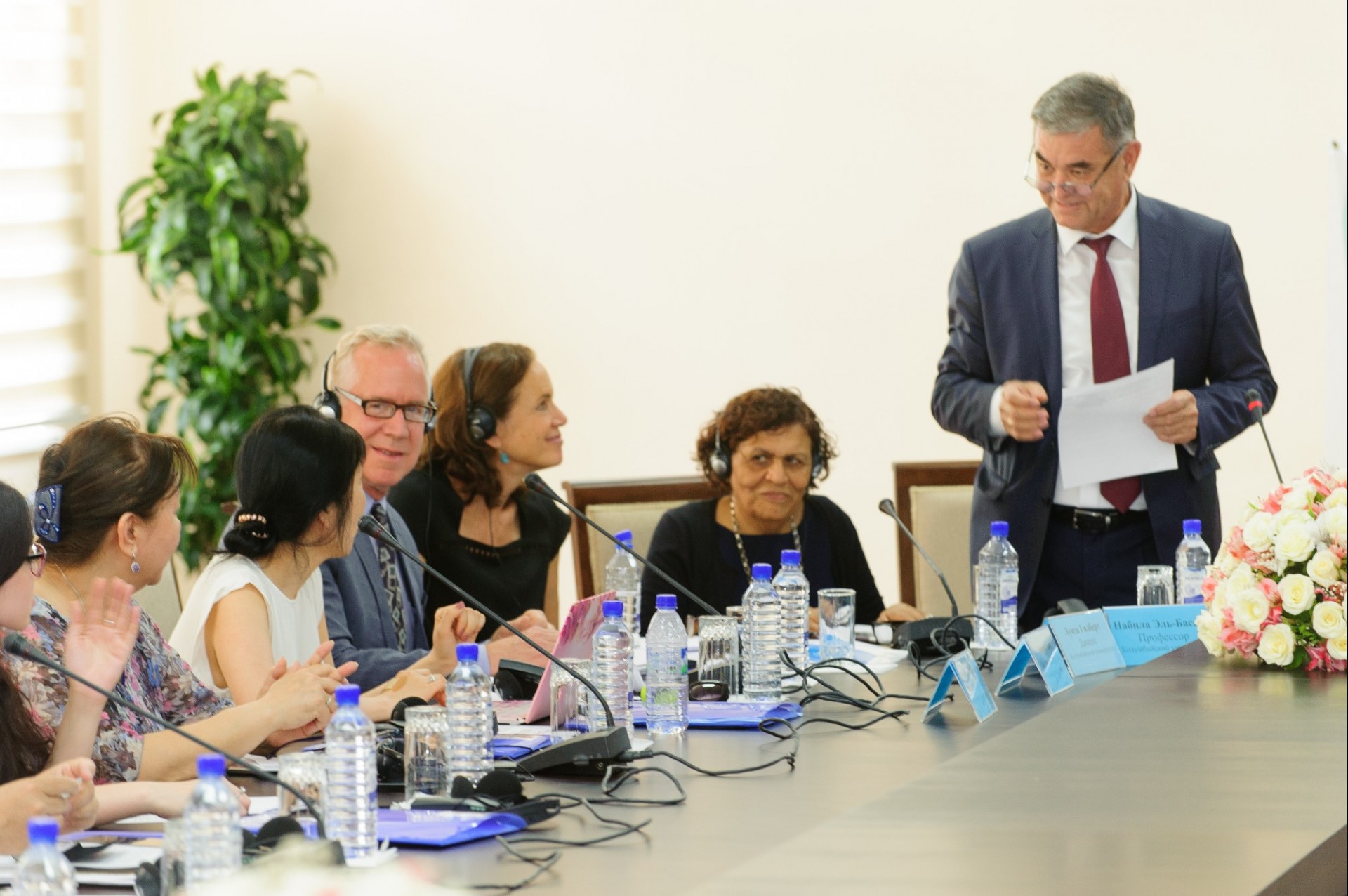
Project launch at the National University of Uzbekistan, with presentations by: Dr. Avazjon Marakhimov, Chancellor of the National University of Uzbekistan; Ms. Tanzila Narbaeva, Deputy Prime-Minister, Chairperson of the Women's Committee of Uzbekistan; Mr. Sascha Graumann, UNICEF Representative in Uzbekistan; Drs. Nabila El-Bassel, Louisa Gilbert and Timothy Hunt, and Ms. Lyudmila Kim of SIG/CSSW

In tandem with Uzbekistan's commitment to social reforms, UNICEF has just funded the Uzbekistan Social Work Education for Excellence Project (USWEEP), an exciting collaboration between UNICEF, the Columbia University School of Social Work (CSSW), the Social Intervention Group (SIG), and the Uzbekistan National Team (NT).
The NT is comprised of academics from three universities -- the National University, Samarkand State University and Fergana State University -- and professionals working in social welfare organizations, developing social work as academic programs, delivering in-service trainings, and adapting evidence-based interventions.
Image Carousel with 2 slides
A carousel is a rotating set of images. Use the previous and next buttons to change the displayed slide
-
Slide 1: Dr. Hunt with National University Faculty and USWEEP Team
-
Slide 2: One group of community leaders collaborating on the project and sharing expertise in social service delivery using a community-level model called Mahallas. CSSW MSW grad Lyudmila Kim is pictured fifth from the left.
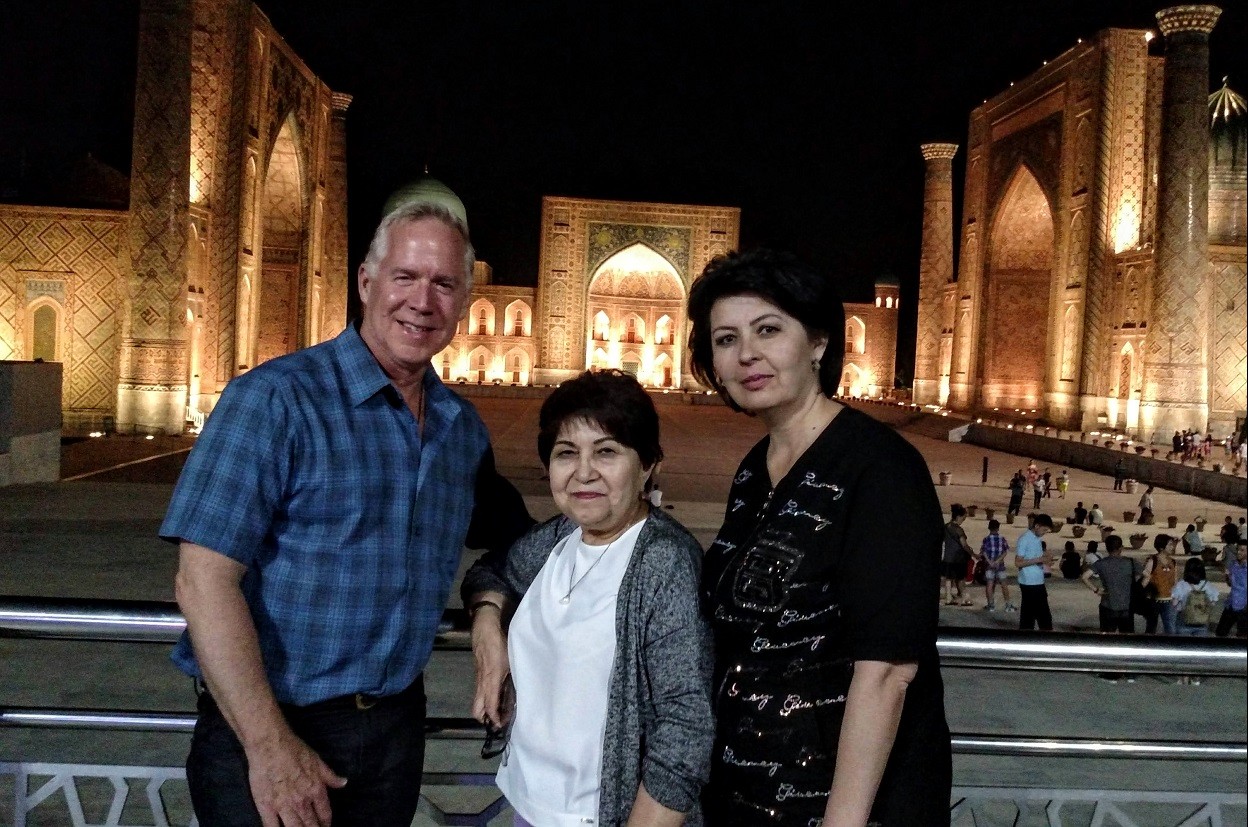
Dr. Hunt with National University Faculty and USWEEP Team
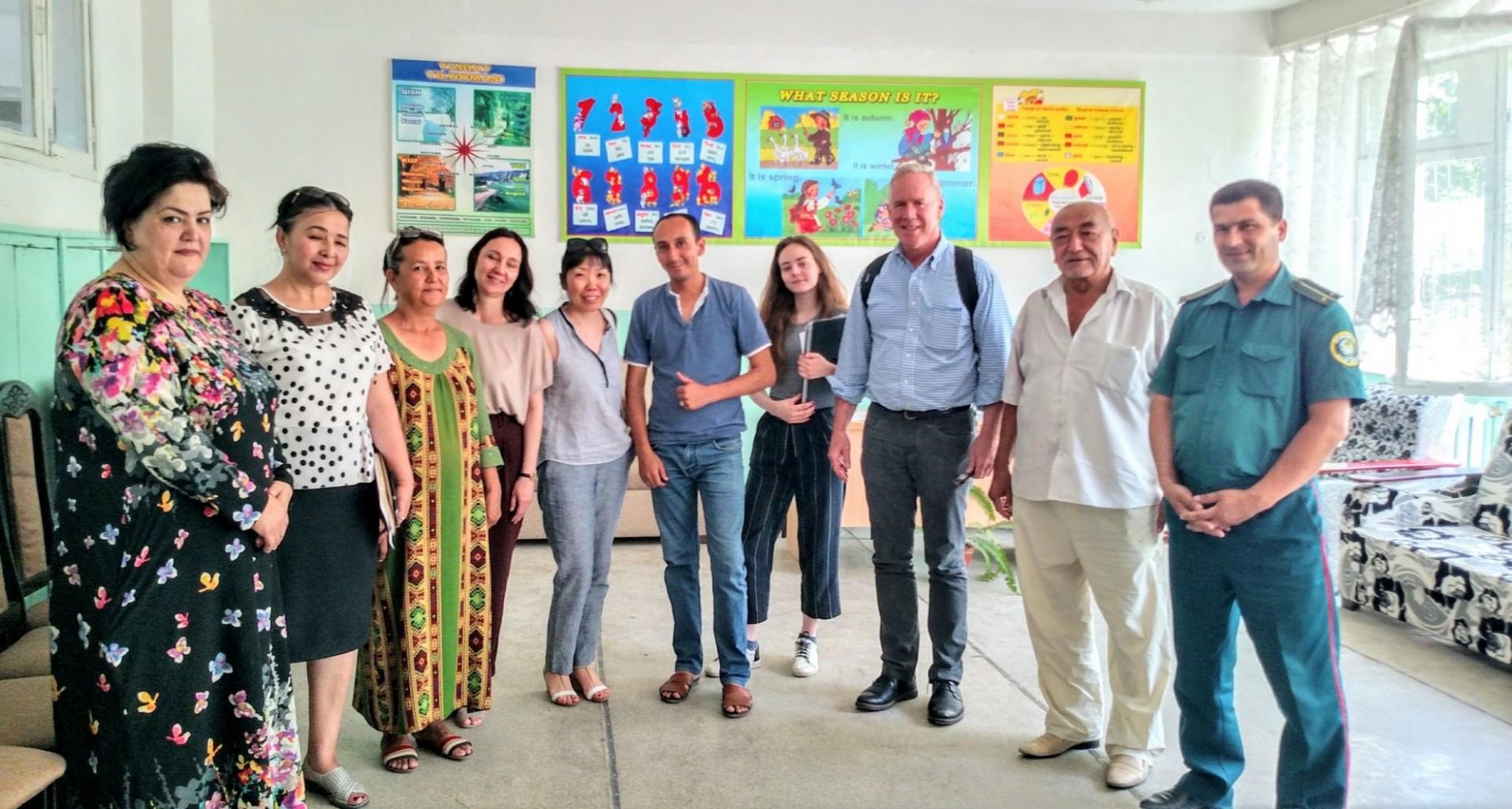
One group of community leaders collaborating on the project and sharing expertise in social service delivery using a community-level model called Mahallas. CSSW MSW grad Lyudmila Kim is pictured fifth from the left.
In addition to child and family protection, USWEEP will help build a sustainable profession of social work for all key populations and levels of service delivery in four main ways:
- Assessment: Identify and expand social work workforce by first conducting a multilevel assessment of social service workforce functions by professionals and paraprofessionals in social and child welfare services nationally;
- Technical support: Draw on CSSW experiences to help revise social work educational programming (including curricula, course design, and field education);
- Capacity building: Lead 18-day training session using a train-the-trainer model for university faculty and staff and the National Team to sustain social work; and
- Curriculum development: With the National Team, help revise their retraining program to build basic social worker skills in paraprofessionals (social work practitioners of social and child welfare) through modern interventions created for vulnerable groups.
From Columbia MSW student to Project Manager in Uzbekistan
Image Carousel with 2 slides
A carousel is a rotating set of images. Use the previous and next buttons to change the displayed slide
-
Slide 1: USWEEP team at the National University of Uzbekistan, one of the university partners. L-R: Louisa Gilbert, Lyudmila Kim, Nabila El-Bassel, and Timothy Hunt
-
Slide 2: USWEEP Team
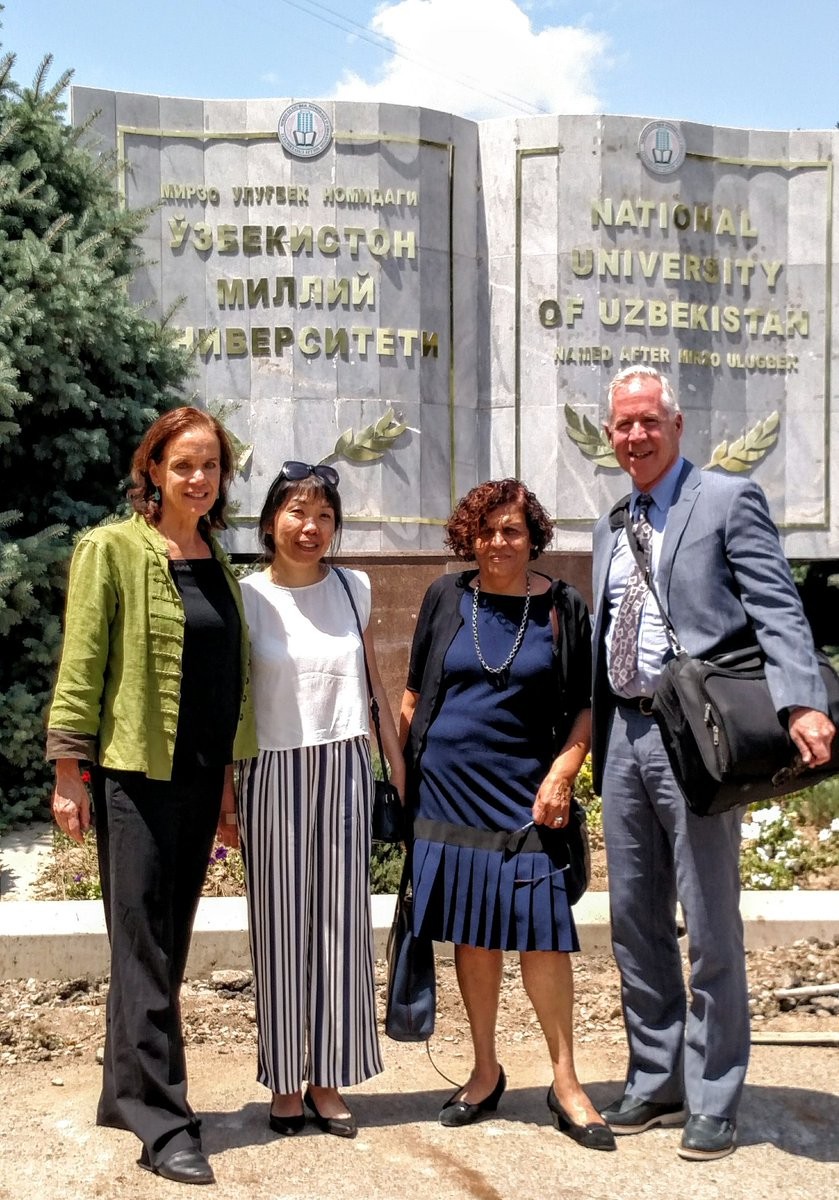
USWEEP team at the National University of Uzbekistan, one of the university partners. L-R: Louisa Gilbert, Lyudmila Kim, Nabila El-Bassel, and Timothy Hunt
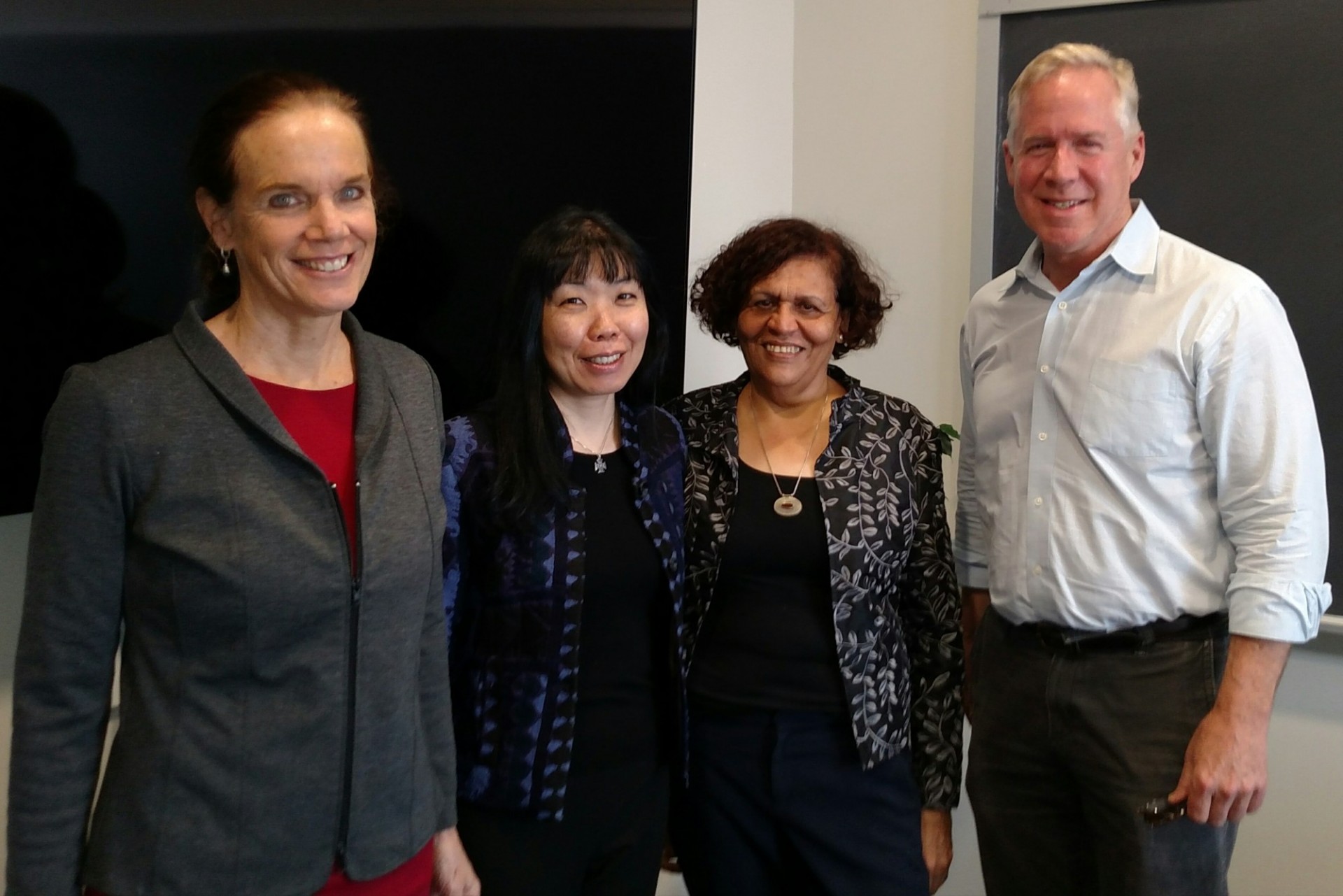
USWEEP Team
Ms. Kim is very interested in opening a center of excellence in social work education and practice in Uzbekistan and throughout Central Asia. She says,
I really hope this project will bring new opportunities for my country to further promote the very young social work profession in Uzbekistan. In particular, I hope USWEEP will become a long-term bridge between the Columbia University and local Uzbek universities and stakeholders enhancing social work curricula, and adapting effective, evidence-based interventions that address contemporary social issues in Uzbekistan.
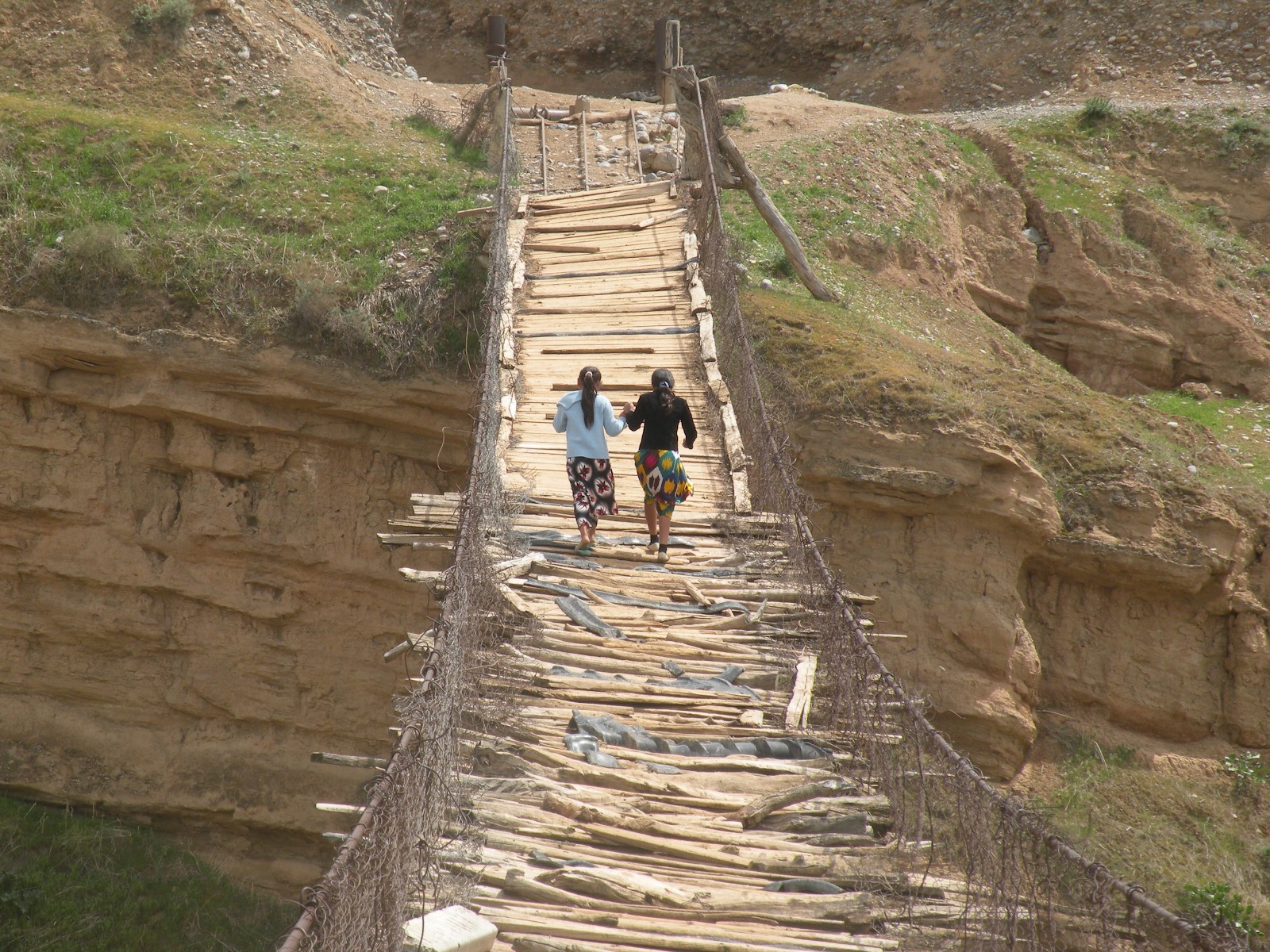
USWEEP is also led by experienced Columbia researchers and scientists Drs. Nabila El-Bassel, Timothy Hunt, and Louisa Gilbert.
The USWEEP team will leverage their experience with implementation research methods and capacity building models to help build the social work profession, and draw on the work of the Global Health Research Center of Central Asia (GHRCCA), Improving Social Work Practice and Skill for Most at-risk Populations in Central Asia (ISWOP), the Jordan Social Work Education for Excellence (JSWEEP), and the Kazakhstan Social Work Education Project.
Image Carousel with 2 slides
A carousel is a rotating set of images. Use the previous and next buttons to change the displayed slide
-
Slide 1: Dr. Nabila El-Bassel presenting at the USWEEP project launch June 2018 at the National University in Tashkent, Uzbekistan.
-
Slide 2: Drs. Louisa Gilbert and Timothy Hunt
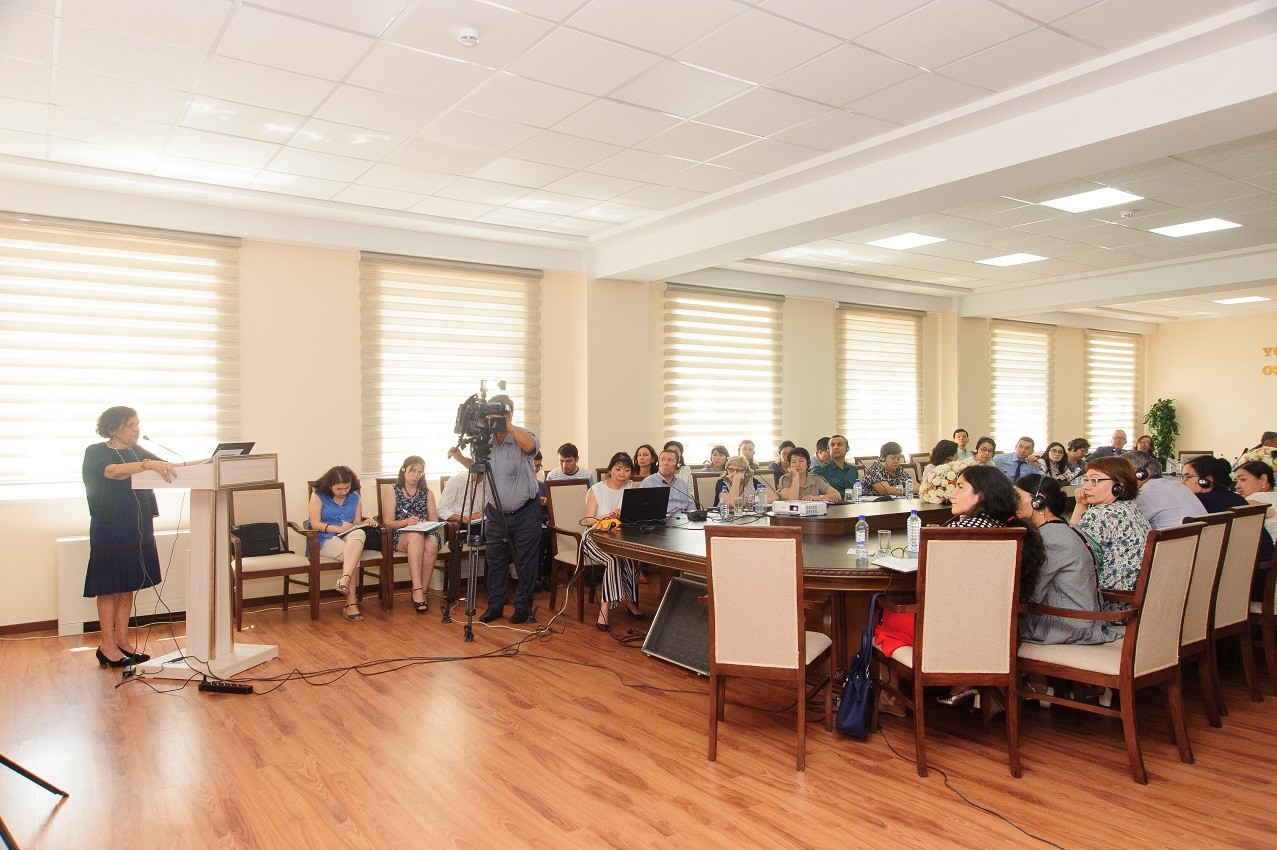
Dr. Nabila El-Bassel presenting at the USWEEP project launch June 2018 at the National University in Tashkent, Uzbekistan.
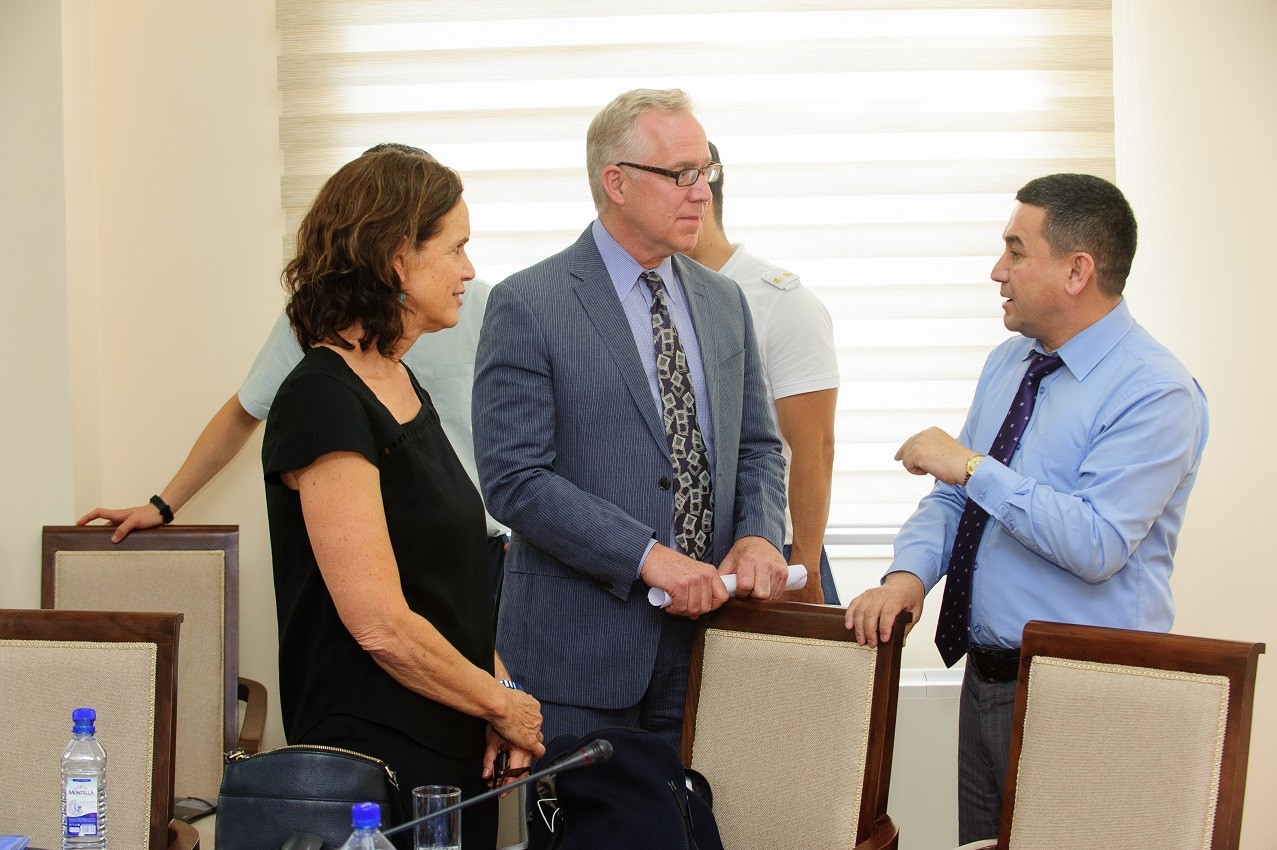
Drs. Louisa Gilbert and Timothy Hunt
SIG Associate Director and USWEEP Principal Investigator Dr. Hunt says,
We are so excited to finally be able to work in Uzbekistan at this pivotal time in the country's growth. The social work profession is ripe to provide the needed leadership and evidence-based strategies to address the growing needs of families at risk and to improve the quality and protections deserved. Like so many countries globally and in Central Asia, Uzbeks can benefit from the vast body of research the profession of social work has to offer. We look forward to building a new cadre of prepared and resourced social workers with our partners.
Dr. Nabila El-Bassel, Professor and Director of the Social Intervention Group and the Global Health Research Center of Central Asia, is also excited about the collaboration.
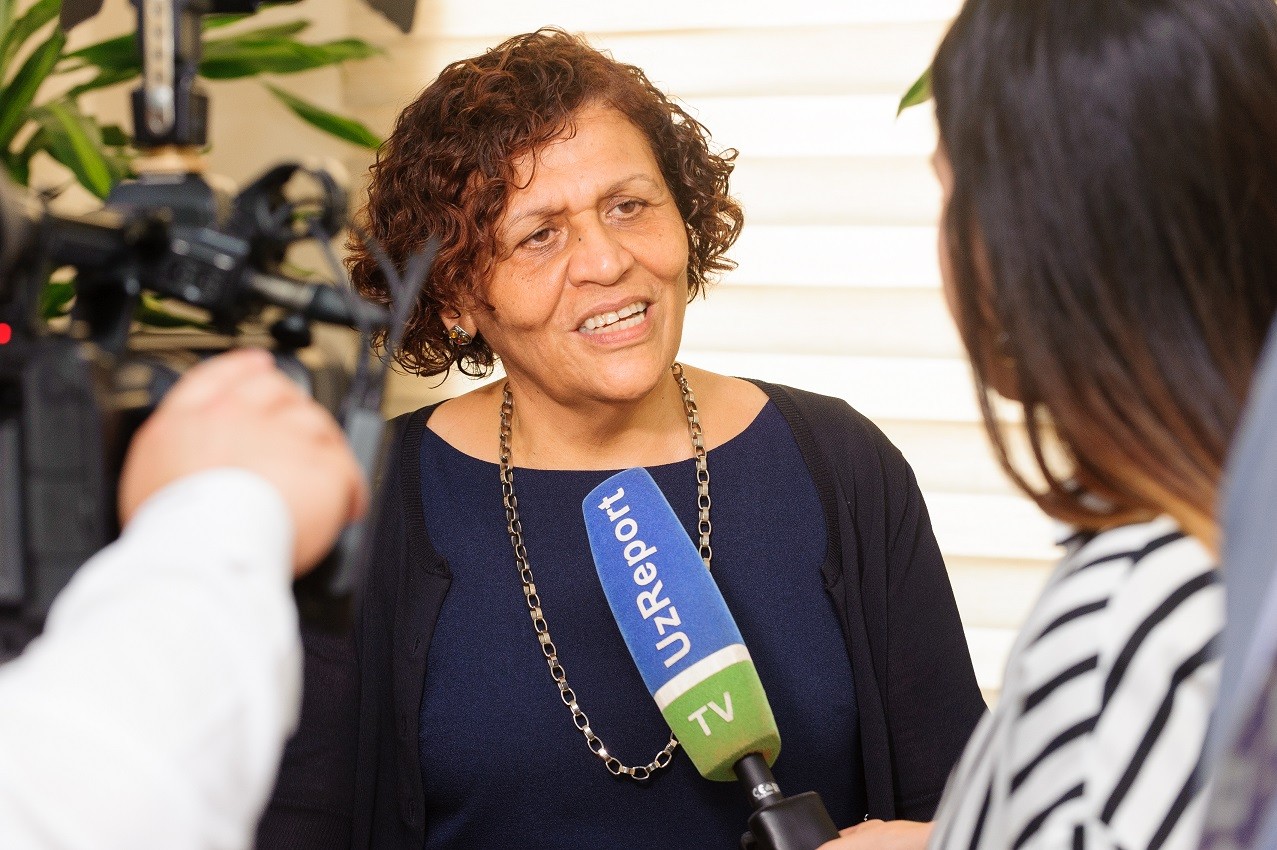
We are making a strong commitment to creating meaningful collaborations with universities in Uzbekistan on social work education, practice and research that will lead to better services for Uzbeki people, enhance social work scholarship, and provide excellent training for the next generation of social workers in Uzbekistan. The purpose of this new collaboration fits well with Columbia University's global mission of education, teaching and research. I am confident that this initiative will not only benefit social workers, students and scholars in Uzbekistan’s universities, but will also benefit our students and faculty at Columbia University School of Social Work whose learning will be enhanced by the collaboration and cross-fertilization of experiences and scholarly ideas.
So far, the USWEEP team have interviewed 181 stakeholders while conducting an assessment of social service functions in Uzbekistan and will be using this data to inform recommendations for policy, education, and practice in social service delivery.
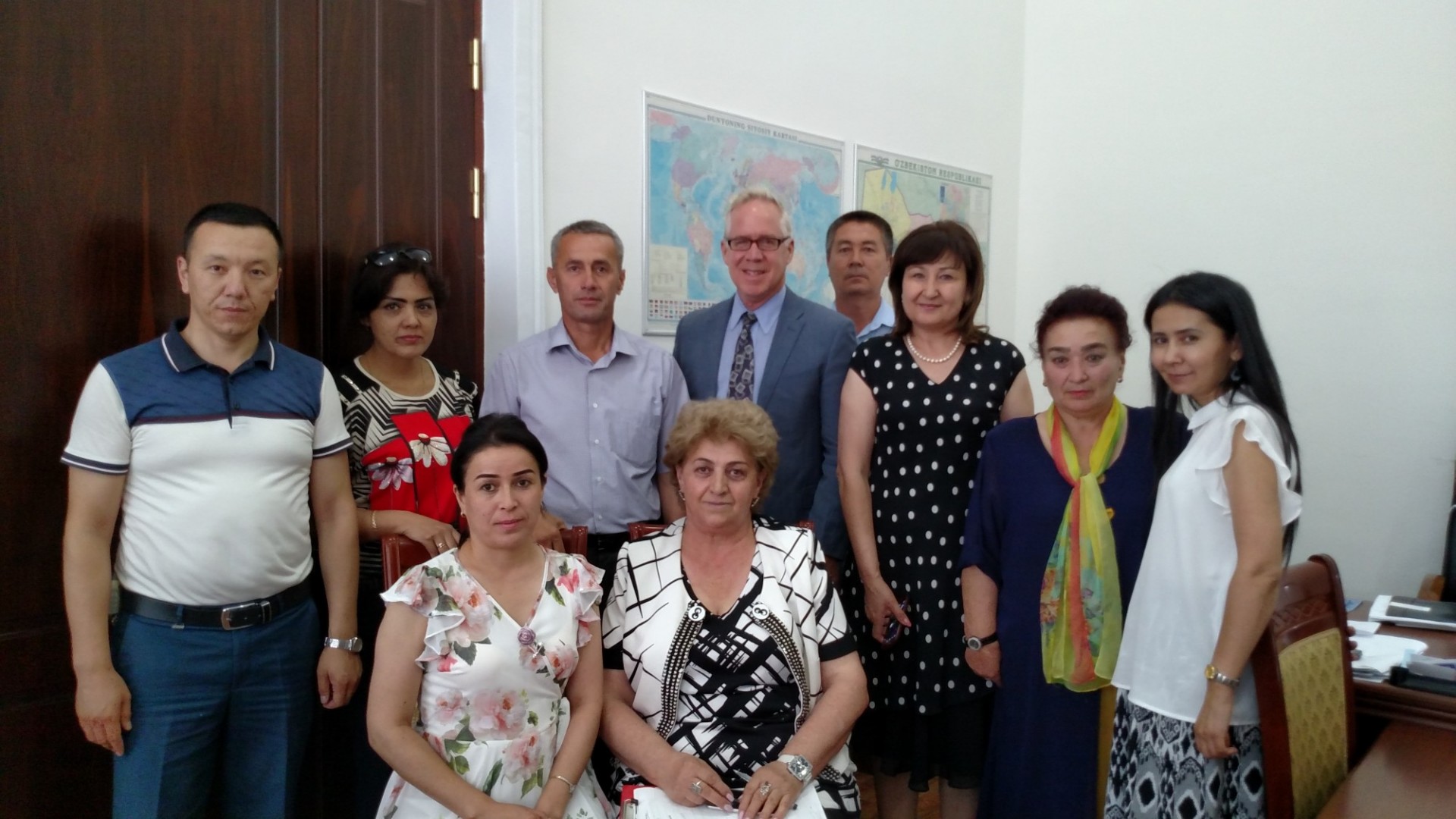
Interested in learning more?
- Contact SIG to inquire about opportunities for collaboration. Specifically, the USWEEP team are seeking individuals familiar with the UZBEK context and are fluent in Russian, Uzbek and English.
- Follow SIG’s work by signing up for our monthly newsletter or following us on Twitter.
